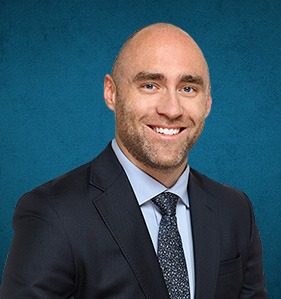CALL (800) 863-5312 TO SPEAK WITH A MIDLAND SLIP AND FALL LAWYER FOR FREE
A slip and fall may seem physically harmless—the only harm being a momentary sense of embarrassment. Unfortunately, a slip and fall can lead to more serious medical problems. We have all heard about unfortunate victims who slip at a mall or the like and break some part of their body. Such victims often seek a premises liability lawyer in order to seek compensation for their injuries.
If you or your loved one has suffered injuries from a slip and fall accident, you may be entitled to compensation. Call Zinda Law Group at (800) 863-5312 for a free consultation with one of our experienced personal injury lawyers.
What Is Premises Liability?
Premises liability is just a fancy way of saying that a property owner has liability for injuries that occur on his or her land. To file a successful premises liability lawsuit, you must show that the property owner was at fault. Most premises liability lawsuits occur because a property owner was negligent with his or her property. However, just because you received injuries on another person’s property does not mean that the property owner was negligent. In general, you can only prove that a property owner was negligent if the property owner knew or reasonably should have known about a danger on their property, but failed to take steps to ensure the safety of visitors.
Types of Duties Owed by Property Owners
In all negligence claims, you must show that you were owed a duty and that the duty was breached by another party. In the slip and fall context, whether you were owed a duty depends on whether you were a licensee, invitee, and trespasser while you were on the property.
Licensee
If you were a licensee when you were on the property, this means that you were on the property for your own benefit than for the benefit of the property owner. For instance, if you went to a friend’s house for a party, you would be considered a licensee.
If you are a licensee, the property owner owes you a duty to make you aware of any dangers on the property. However, a property owner does not have to fix anything to make the property safe.
In the slip and fall context, imagine that you are at a friend’s house and your friend knows that his or her stairs recently were washed. Your friend has a duty to tell you that the stairs are wet. However, he or she does not have a duty actually to make it less slippery.
Invitee
On the other hand, if you were an invitee, then you were on the property for the property owner’s benefit. There are two types of invitees: business and public. An example of a public invitee is someone who goes to a public place like a library. An example of a business invitee is someone who goes to a store to buy merchandise. However, if you went to the store to ask for directions or use the restroom, you will likely be considered a licensee rather than an invitee.
The reason why you need to distinguish these seemingly similar-meaning words is that depending on what status you held while you were on the property, the more or less likely the property owner owed a duty to you. Invitees are owed the most protection because they are on the property for the property owner’s benefit. Property owners thus must take more steps to provide a safe place for invitees.
For example, if you went to a restaurant and the restaurant knows that a certain section of the restaurant has a wet floor, the restaurant management must place signs and place barriers or the like to prevent people from slipping. Otherwise, the restaurant will likely be found at fault for an accident.
Trespasser
Trespassers are those who enter another’s property without permission. Though counterintuitive, even trespassers are owed a duty by property owners. Texas law forbids property owners from willfully injuring trespassers. For instance, a property owner may not purposely set up booby traps in order to harm trespassers.
Common Slip and Fall Causes
- Loose floorboards
- Potholes
- Damaged sidewalks
- Wet floors
- Snow or ice
- Flooding or leaks
- Swimming pools
- Construction work
What to Do After a Slip and Fall Accident
1. Report the Accident
First, you should report the accident to the property owner as soon as possible. This is in order to provide a record of your accident, which will be important later on if you decide to file a claim.
2. Collect Evidence
Gather the names of witnesses who were there to witness your fall. Take photographs of the scene of the accident and your injuries.
3. Get Medical Attention
Seek medical attention as soon as possible. Your health is your number one priority. However, by getting medical attention, you also get the benefit of having doctors to record your injuries.
4. Get a Lawyer
If you decide to file a claim and you believe that you may be able to file a claim on your own without hiring a lawyer, it may be still useful to at least consult with a lawyer in order to find out if there are any pitfalls in your case.
Common Injuries
- Bruises and Cuts
- Stretched Tendons, Pulled Muscles, Torn Ligaments,
- Sprained or Broken Ankles/Wrists
- Broken Arm/Legs
- Fractured Collarbones
- Damaged Knees
- Fractured Tailbones
- Hip Fractures
- Spinal Cord Injury
Making a Claim
1. Talk to a Premises Liability Attorney
If you are thinking about making a claim, an attorney is the best place to start as they can help you establish fault, build the strongest case possible for you, and calculate the amount of compensation you may be entitled to.
2. Investigation
Your attorney will then begin investigating your claim with the aim to build the strongest case possible for you. At this point, your lawyer may ask you for information about your case, request receipts of expenses, details of lost income, etc. to help evaluate your claim.
3. Negotiation
Once your case has been built, your attorney will then issue a demand letter to the other side, and begin negotiation of how much compensation you intend on seeking.
4. Settlement
If an agreement is met at the negotiation stage, then your case will be settled, and your attorney will walk you through the steps of receiving your settlement. Most personal injury cases are settled before ever having to step foot into a courtroom. If your case is not settled at this stage, then your case will proceed to trial. Your attorney and legal team may be right there beside you every step of the way, should this happen.
Compensation
Compensation is provided for economic losses and non-economic losses.
Economic losses include the following:
- past and future medical bills
- past and future lost wages
- damaged property
- past and future loss of earning capacity
Non-economic losses include the following:
- past and future emotional anguish
- pain
- loss of enjoyment of activities
Determining Fault
Be aware that Texas courts use what is called a modified comparative fault rule when it determines how much compensation a victim is eligible to seek. What this rule states is that if an injured victim was 51% or more at fault for an accident, then he or she cannot seek compensation.
However, if the victim is found to be 50% or less at fault for the accident, his or her compensation will be reduced by the percentage of fault. For instance, if the jury determined the extent of your damages to be worth $100,000 in compensation, but also found that you were 50% at fault, then the most compensation you could seek would be $50,000.
How a jury determines how much fault the victim had in a slip and fall accident depends on several factors. For example, if the victim was running around and not paying attention to his or her surroundings, the jury will likely place more fault on the victim than if the victim was walking with care.
Legal Time Limits
In Texas, any civil action for personal injury must be filed within two years from when the injury occurred. In other words, if you have a slip and fall accident, you have two years from the date of your slip and fall to file a claim.
It is important to speak with an attorney to understand more about the legal time limits pertaining to your case because, in some cases, you may be able to file a claim even after the time limit has expired.
OUR MIDLAND SLIP AND FALL LAWYERS ARE HERE TO HELP YOU
If you were in an accident that occurred on the property of another, you may have sustained injuries that could require extensive and expensive medical treatment or you may be facing a long road to recovery.
Call our experienced premises liability lawyers today at 303-647-4248 and schedule your free consultation. Our firm operates on a contingency basis – this means if we don’t reach a favorable result in your case, you don’t owe us anything.
Meetings with attorneys by appointment only.

John (Jack) Zinda
Founder / CEO
Over 100 years of combined experience representing injured victims across the country.
Available 24 / 7|Free Consultation
Neil Solomon
Partner
Real results matter. We do not get paid unless we win your case.
Available 24 / 7|Free Consultation

























